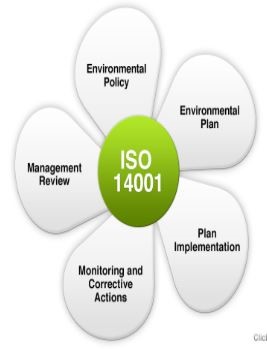ISO 14001, a proven framework to limit environmental impacts
Customers are requiring more environmentally responsible products and services from their suppliers than ever before.

ISO 14001 is a globally recognized management system standard published by ISO (International Organization of Standardization) providing a tried and tested framework for ensuring regulatory compliance.
Implementing an Environmental Management System is a solid way to identify and control the effects of your company on the environment. It is based on five environmental management principles:
The main purpose of the ISO14001:2015 revision is to provide a set of common and stable requirements for at least the next 10 years. This will be possible due to the requirement that all management systems standard use the same high level structure as a base.
Benefits of an Environmental Management System
Control costs by conserving input materials and energy
With the ISO 14001 management system, cost savings can be made through improved efficiency and productivity. Minimize waste and learn how to improve your energy efficiency in order to reduce operating costs.
Continually improve environmental performance
By setting specific targets defined by environmental policies and continual measuring your performance against it ensures the system is maintained.
Reduce incidents that result in liability claims
By implementing ISO 14001, the risk of penalties and liability claims are greatly diminished.
Additionally, ISO 14001 is designed to be compatible with other management systems standards and specifications, such as ISO 45001 and ISO 9001 .